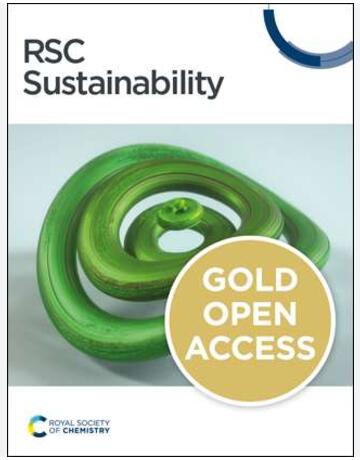Do Runoff Water Harvesting Ponds Affect Farmers Cropping Choices? Insights from Smallholders in the West African Sahel
IF 3.3
3区 环境科学与生态学
Q2 ENVIRONMENTAL SCIENCES
引用次数: 0
Abstract
Supplemental irrigation based on runoff harvesting is a sustainable solution in the current context of water scarcity that is prevalent in Sahelian countries. Runoff water harvesting ponds (RWHPs) are increasingly being utilized for vegetable cultivation by producers. This study aims to analyze the cropping choices of producers benefiting from RWHPs in the Kadiogo and Bazèga provinces of Burkina Faso in the West African Sahel. A sample of 27 surveyed producers revealed a dominant preference for vegetable crops (93.46% of the total production) over cereals. The cropping choices are influenced by factors such as the crop resistance to dry spells, the water demand, the economic return, and the market demand. For the effective utilization of the basins, crop choices should consider the water retention capacity of the basin. Additionally, to enhance the retention capacity, it is advisable to line them using appropriate waterproofing techniques. Similarly, the selection of basin installation sites should consider the soil characteristics and site-specific considerations. The findings of this research highlight the potential of runoff water harvesting basins to significantly improve agricultural productivity and resilience in the West African Sahel, thereby contributing to enhanced food security and improved livelihoods for local farmers.径流集水池会影响农民的种植选择吗?西非萨赫勒地区小农的见解
在当前萨赫勒国家普遍缺水的情况下,基于径流收集的补充灌溉是一种可持续的解决方案。越来越多的生产者利用径流集水池(RWHPs)种植蔬菜。本研究旨在分析西非萨赫勒地区布基纳法索卡迪奥戈省和巴泽加省受益于径流集水池的生产者的种植选择。对 27 个生产者的抽样调查显示,他们主要偏好种植蔬菜作物(占总产量的 93.46%),而不是谷物。作物种植选择受多种因素影响,如作物对干旱的抵抗力、需水量、经济回报和市场需求。为有效利用盆地,作物选择应考虑盆地的保水能力。此外,为了提高蓄水能力,最好采用适当的防水技术。同样,盆地安装地点的选择也应考虑土壤特性和具体地点。这项研究的结果突出表明,径流集水池有可能显著提高西非萨赫勒地区的农业生产率和抗灾能力,从而有助于加强粮食安全和改善当地农民的生计。
本文章由计算机程序翻译,如有差异,请以英文原文为准。
求助全文
约1分钟内获得全文
求助全文
来源期刊

Sustainability
ENVIRONMENTAL SCIENCES-ENVIRONMENTAL SCIENCES
CiteScore
6.80
自引率
20.50%
发文量
14120
审稿时长
17.72 days
期刊介绍:
Sustainability (ISSN 2071-1050) is an international and cross-disciplinary scholarly, open access journal of environmental, cultural, economic and social sustainability of human beings, which provides an advanced forum for studies related to sustainability and sustainable development. It publishes reviews, regular research papers, communications and short notes, and there is no restriction on the length of the papers. Our aim is to encourage scientists to publish their experimental and theoretical research relating to natural sciences, social sciences and humanities in as much detail as possible in order to promote scientific predictions and impact assessments of global change and development. Full experimental and methodical details must be provided so that the results can be reproduced.
 求助内容:
求助内容: 应助结果提醒方式:
应助结果提醒方式:


